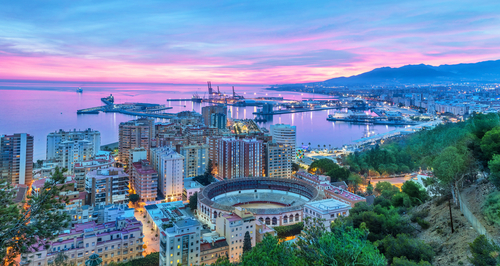5 things you should do when buying a property on the Costa del Sol

5 things you should do when buying a property on the Costa del Sol
When buying a property in Spain, Aqua Estates advises our clients to follow this simple five-point plan.
1. View properties on the Costa del Sol
When a client falls in love with a property, we always advise them to come back for another visit and to make an appointment for another time of the day. For example, an east-facing house seen in the morning will be full of sun, but by the afternoon the sun will be gone. If the terrace faces east and you want to spend your evenings outdoors, will this property really suit you?
2. Explore the location on the Costa del Sol
We also recommend that buyers spend considerable time exploring the location and finding out where stores, health services and schools are located in relation to a property. Also, if possible, talk to some locals and find out as much as you can about the community and what is available in terms of leisure and entertainment.
3. Essential Documents
When you buy a property in Spain, the seller must provide you with a number of documents. The most essential is the Nota Simple. This is a report from the Land Registry that gives you all the details about the property.
In the Nota Simple you will find the following:
– Name of current owner
– How the land is classified
– The boundaries of the parcel
– If the property has any debt against it, often mortgages or unpaid taxes
– The total square meters of the land and property
– Any rights that others may have in relation to the property, such as water, sewer and public roads/roads.
It is important to note that, in Spain, debts are usually linked to the property and not to the owner. Your attorney should look for any debts and should resolve them with the seller immediately, or as the new owner, you may be liable for them. To obtain a Nota Simple of a property, you will need to provide your lawyer with the address of the property and the province in which it is located.
You will also need the Scripture. This is the deed held by the Land Registry and must be signed and stamped by a Notary Public. Sellers will also have to show their last receipts for Community expenses, as well as the annual IBI and ‘Basura’ tax, which is the garbage collection tax.
4. The cost of public services
The cost of utilities may not be the first thing you think of when buying a Spanish property, but it is advisable to look at the costs of electricity, heating, gas and water in advance, and to look at the bills for the summer and winter periods in particular. The seller should be able to provide you with copies of the invoices and explain them to you. In addition, all properties need an Energy Performance Certificate (EPC), which rates a property based on its consumption of electricity, water and gas, and the seller must provide you with a copy.
5. Independent legal advice
We will never tire of insisting on the importance of having independent legal advice when buying a property in Spain. There are good reasons to retain the services of an independent lawyer, rather than one recommended by a developer or other agent, and the first of these is that a legal representative retained by you is bound to act in your best interests, not anyone else’s.
We hope this has been helpful, and if Aqua Estates can advise you on any other matters, including finding your dream property on the Costa del Sol – please contact us.